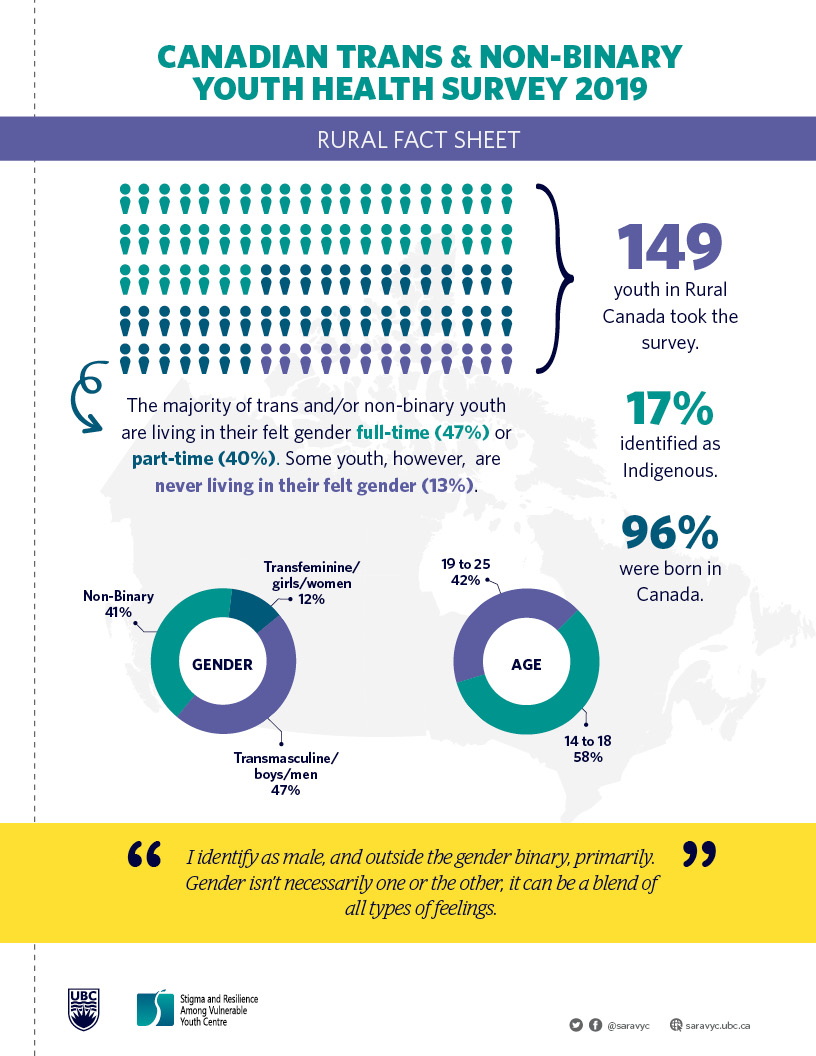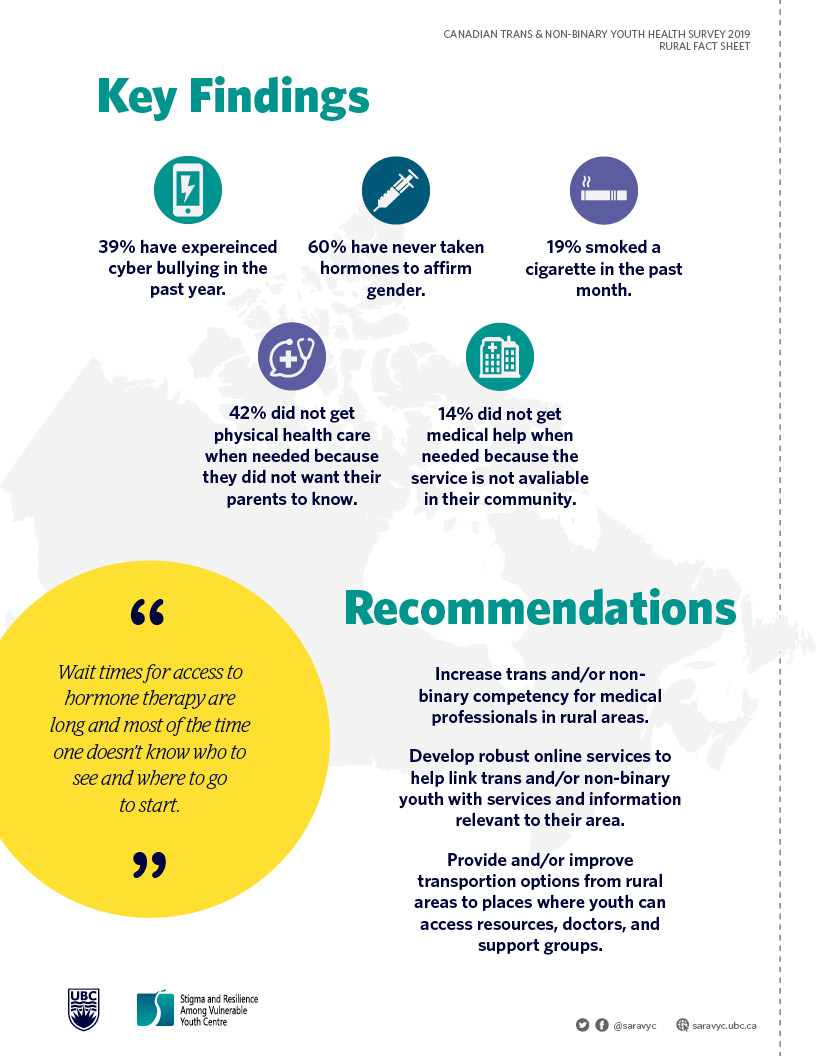Being Safe, Being Me 2019: Results of the Canadian Youth Trans and Non-binary Health Survey is a national study by SARAVYC that builds on a similar survey conducted by SARAVYC in 2014. Similar to the survey in 2014, this survey was available for young people to take in English or French and surveyed a range of topics including gender identity, access to gender-affirming care and physical health.
In 2019, 149 trans and/or non-binary youth in rural communities took the survey. Of the youth in rural communities who took part in the survey, 17% identified as Indigenous and 96% were born in Canada. The majority of trans and/or non-binary youth in rural communities reported that they are living in their felt gender full-time (47%) or part-time (40%). Some youth, however, are never living in their felt gender (13%).
Key findings for rural youth
- 39% have experienced cyber bullying in the past year
- 60% have never taken hormones to affirm their gender
- 19% smoked a cigarette in the past month
- 42% did not get physical health care when needed because they did not want their parents to know
- 14% did not get medical help when needed because the service is not available in their community
Recommendations for rural youth
- Increase trans and/or non-binary competencies for medical professionals in rural areas.
- Develop robust online services to help link trans and/or non-binary youth with services and information relevant to their area.
- Provide and/or improve transportation options from rural areas to places where they can access resources, doctors, and support groups.



